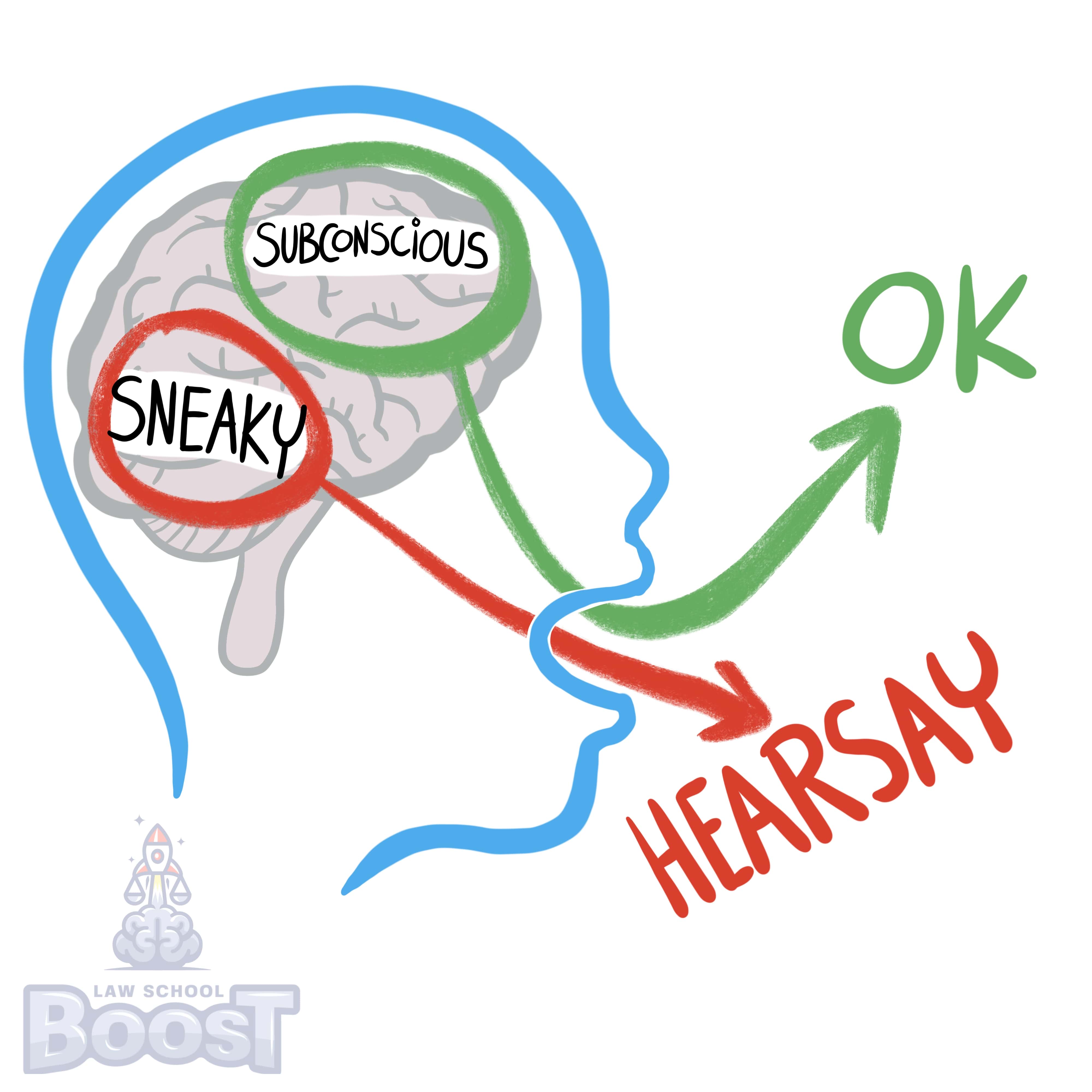🦅
Federal Evidence • Hearsay Exceptions - Unavailability Required
EVID#043
Legal Definition
These are statements of a declarant's past physical or mental condition (including statement of intention) and are admissible to prove the condition of an issue.
The witness must be unavailable.
The witness must be unavailable.
Plain English Explanation
This rule allows statements that a person made in the past about things like their health, feelings, intentions, or beliefs to be used as evidence in court, even though those statements are technically "hearsay" (second-hand information). The reason this exception exists is that often a person's physical or mental state is an important fact in a legal case, but the person can't make those statements directly in court because they are now deceased, missing, or otherwise unable to testify. So rather than losing this potentially crucial evidence, the law allows these types of second-hand statements to be admitted. However, the rule still requires the person to be truly unavailable - you can't just use the person's old statements without giving them a chance to tell their story directly to the court if possible. This balances the interests of including reliable evidence with protecting parties' rights.
Hypothetical
Hypo 1: Bob was in a car accident and claimed he had a severe headache just before it happened, which he mentioned to his doctor. Later, Bob couldn't testify in court due to his severe injuries. Result: Bob's statement to his doctor about his headache can be used in court to show his physical condition (the headache) at the time of the accident, even though Bob can't be there himself.
Hypo 2: Sam made a will leaving everything to charity, but his family claimed he wasn't in his right mind when he made it. Before Sam passed away, he had discussed his clear intentions and sound mind with his psychiatrist. Result: Sam's discussions with his psychiatrist can be used in court to prove his mental state when he made the will, as Sam is no longer available to testify.
Hypo 2: Sam made a will leaving everything to charity, but his family claimed he wasn't in his right mind when he made it. Before Sam passed away, he had discussed his clear intentions and sound mind with his psychiatrist. Result: Sam's discussions with his psychiatrist can be used in court to prove his mental state when he made the will, as Sam is no longer available to testify.
Visual Aids

Related Concepts
Does California recognize the statement of personal or family history hearsay exception?
How does the dying declaration hearsay exception differ in California?
How does the former testimony hearsay exception differ in California?
How does the statement against interest hearsay exception differ in California?
How does the statement offered against party procuring declarant's unavailability hearsay exception differ in California?
In California, what is the statement describing infliction—or threat—of physical injury hearsay exception, and does it require the witness to be available? This is sometimes called the "OJ Exception."
What is the dying declaration hearsay exception, and does it require the witness to be available?
What is the former testimony hearsay exception, and does it require the witness to be available?
What is the statement against interest hearsay exception, and does it require the witness to be available?
What is the statement offered against party procuring declarant's unavailability hearsay exception, and does it require the witness to be available?
What is the statement of personal or family history hearsay exception, and does it require the witness to be available?


